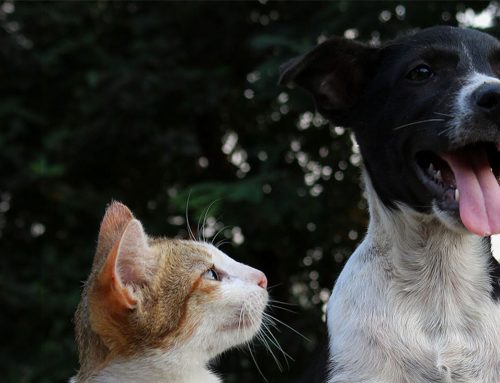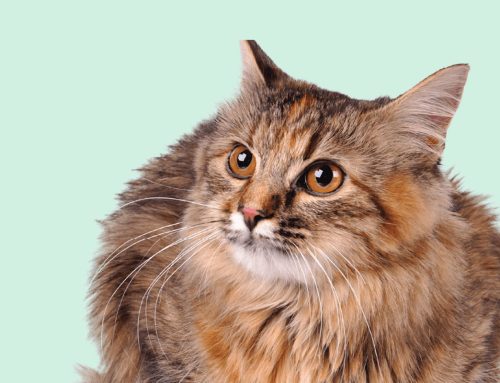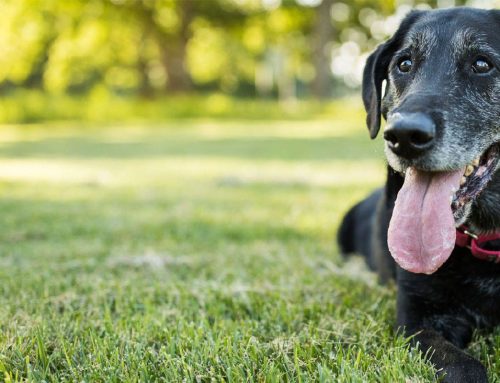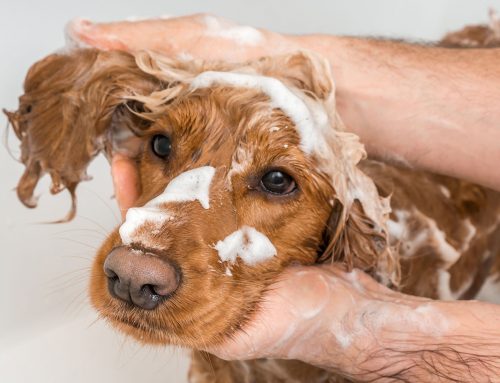It’s a natural part of life for pets to grow old. Your veterinarian can help enhance the wellbeing of senior pets.
Quakers Hill Veterinary Hospital offers a Senior Care Package for dogs and cats 8 years and older (from 6 years in large breeds). The service include a consultation and examination, blood test and urine test at a discounted rate. It is recommended to repeat it every six months.
A senior pet is one that describes an ageing or older pet. The rate of ageing differs between breed and size of the pet.
| Size of dog (kgs) | Adult | Senior | Geriatric |
| <10 | 4-8 yrs | 8-14 yrs | 14+ yrs |
| 10-23 | 3-8 yrs | 8-12 yrs | 12+ yrs |
| 24-40 | 3-6 yrs | 6-10 yrs | 10+ yrs |
| >40 | 3-6 yrs | 6-10 yrs | 10+ yrs |
Goals for senior care:
- Enhance the human-animal bond
- Promote early detection of abnormalities
- Promote individualized medical care to enhance the quality of life
Focused areas of wellness in the senior pet:
- Dental care
- Diet and nutrition
- Weight control – particularly weight gain in dogs
- Parasite control
- Exercise
- Vaccination
- Mental health including environmental enrichment
- Housing and the accommodation of disabilities such as vision and hearing loss
Signs
As pets get older, they can start to show signs of old age including:
- White hair around the muzzle
- Poor hearing
- Poor sight
- Poor smell
- Decreased energy
- Changes in appetite
- Fewer teeth
- Stiff joints
- Sleepy
Older pets can become sick more often. You can help by watching your pet every day for signs of a problem.
- Increased drinking or peeing
- Weight loss or gain
- Decreased appetite or failure to eat
- Vomiting or diarrhoea
- Difficulty in peeing or pooping
- Lameness
- Bumping into things
- Bad breath
- Sleeping a lot
- Hair loss
- Panting or coughing
- Weakness
It is important to keep feeding and sleeping habits consistent to avoid stress. Even vision-impaired pets cope well with a good routine and familiar areas. It’s from the middle-aged years that we should become more vigilant for early changes. Diseases can begin during these years and it often not until their senior years that the disease progresses to a point where the condition can become life-threatening. Early detection is important.
Common senior pet conditions:
- Osteoarthritis
- Dental disease
- Hypothyroidism in dogs
- Diabetes
- Cognitive dysfunction
- Incontinence (fecal and urinary)
- Spinal cord disease
- Vision loss
- Hearing loss
- Kidney failure
- Heart disease
It’s a good idea to take your senior pet to the vets every 6 months so that any problems can be picked up early.
Tips
Senior pets need special care:
- Handle them gently
- Provide them with soft but firm bedding
- Keep the bed area away from cold draughts
- Set up a ramp instead of stairs
- Give them soft food
- Provide them with elevated feeders
- Provide them with slow and gentle exercise daily
- Take them to the vet at least twice a year
- Teach your pet hand signals with verbal signals
- Avoid sudden movements
- Use the ground for sending vibrations
- Keep to a strict routine – meals and toileting
Published Materials
1. Prevalence of clinicopatholgical changes in healthy middle-aged dogs and cats presenting to veterinary practice for routine procedures. Dell’osa D et al, Australian Veterinary Journal (2016); 94: 317-323.
In this study of “healthy” dogs (n=406) and cats (n=125), results revealed only 13.5% of dogs and 20% of cats had no changes, whereas 6.2% of dogs and 19.2% of cats had changes that were considered significant and warranted further investigation. Examples of significant changes include IRIS Stage 2 kidney disease, liver enzymes over five times the upper end of normal or neutropenia.
2. Results of Screening of Apparently Healthy Senior and Geriatric Dogs. Willems A et al, Journal of Veterinary Internal Medicine (2017); 31 : 81-92.
In this study of 100 dogs (41 senior and 51 geriatric) that the owners perceived as healthy, a significant number of laboratory abnormalities were detected including azotemia, elevated liver enzymes and proteinuria.
3. ROUTINE HEALTH SCREENING. Findings in apparrently middle-aged and old cats. Paepe D et al, Journal of Feline Medicine and Surgery (2013); 15: 8-19.
In this study of 100 cats (56 middle aged and 44 old) that the owners perceived as healthy, a signifcant number of laboratory abnormalities were detected including aotemia and proteinuria.






